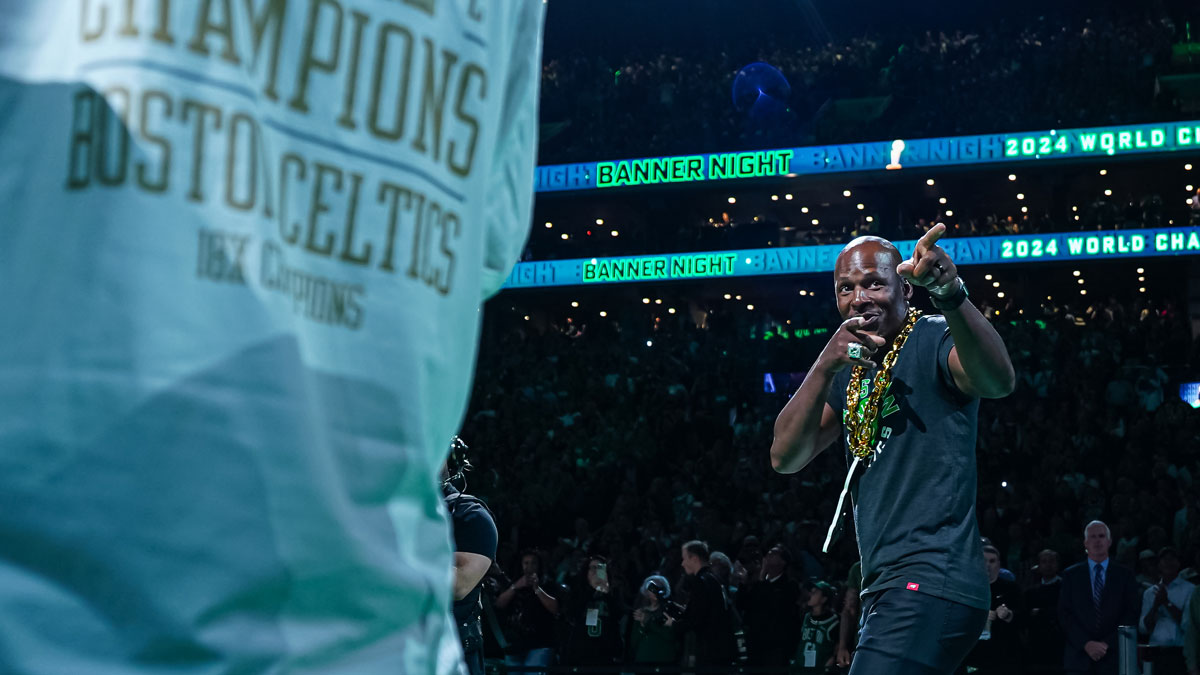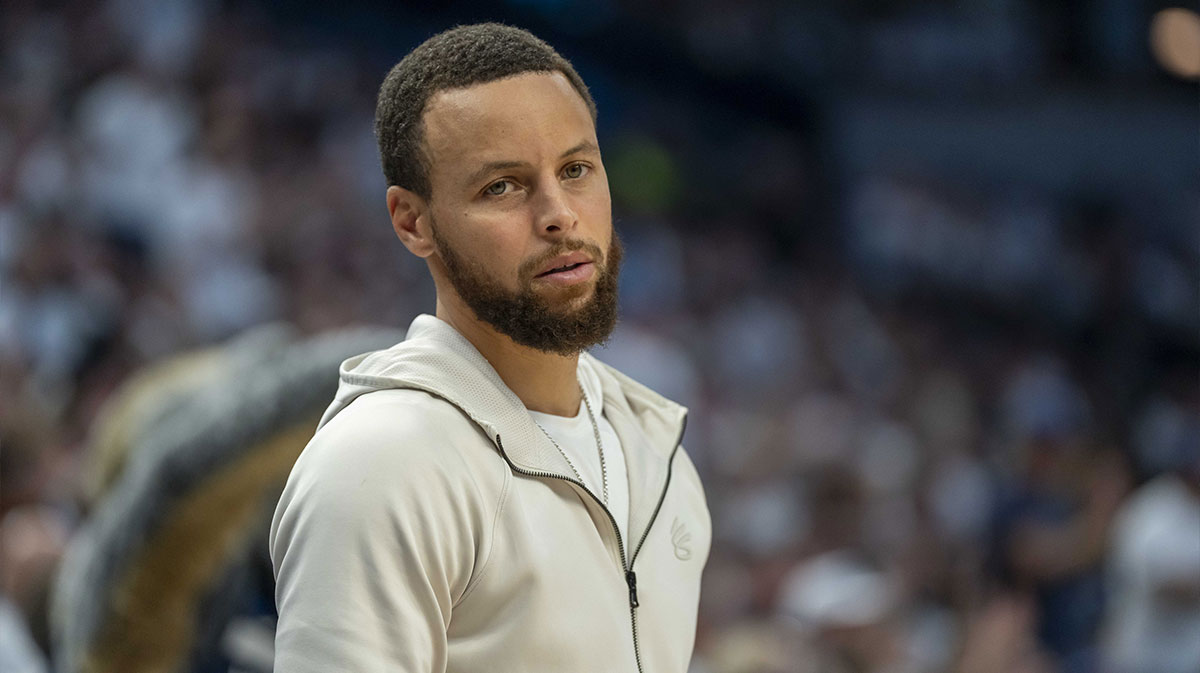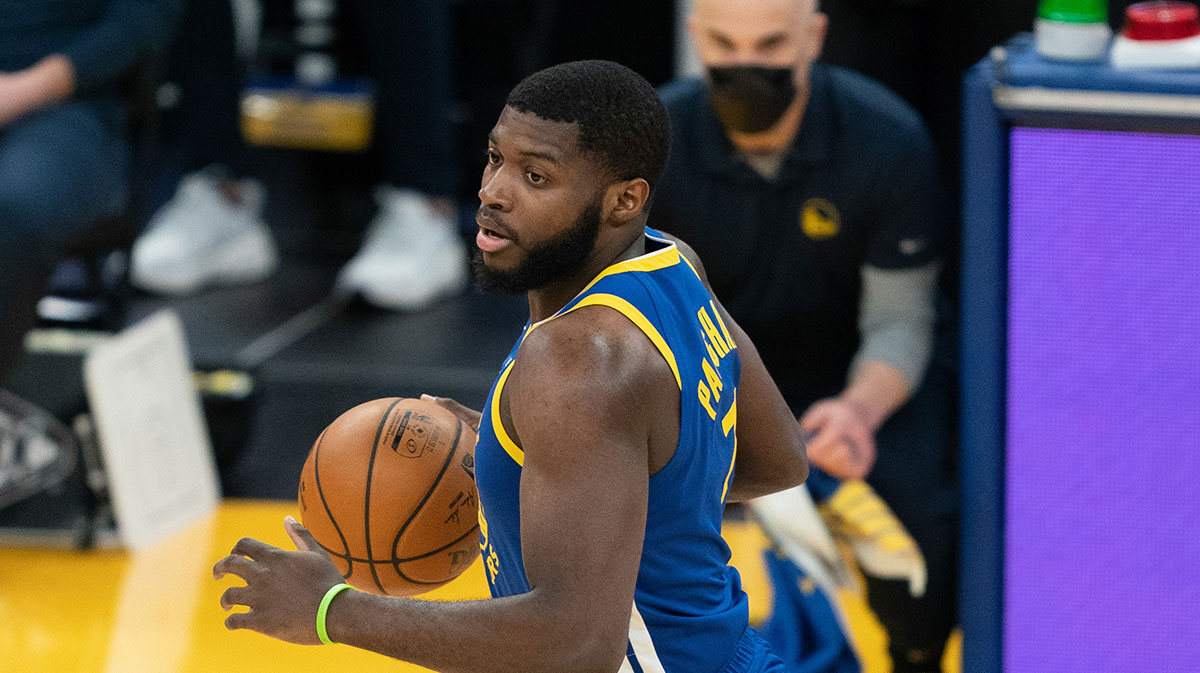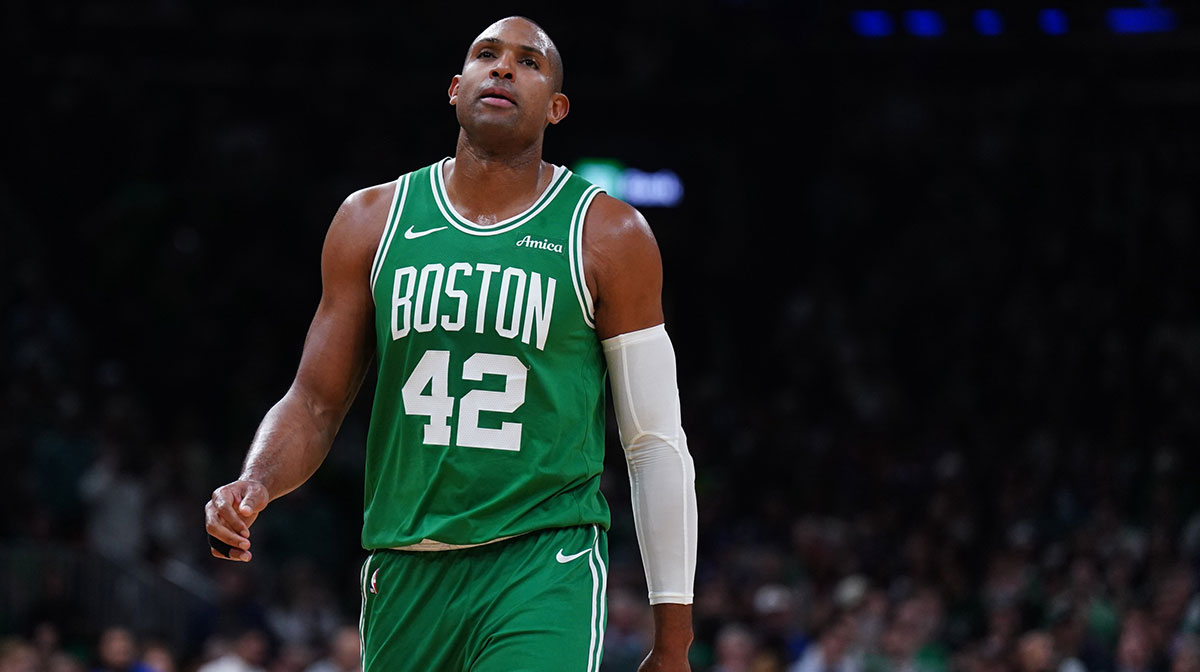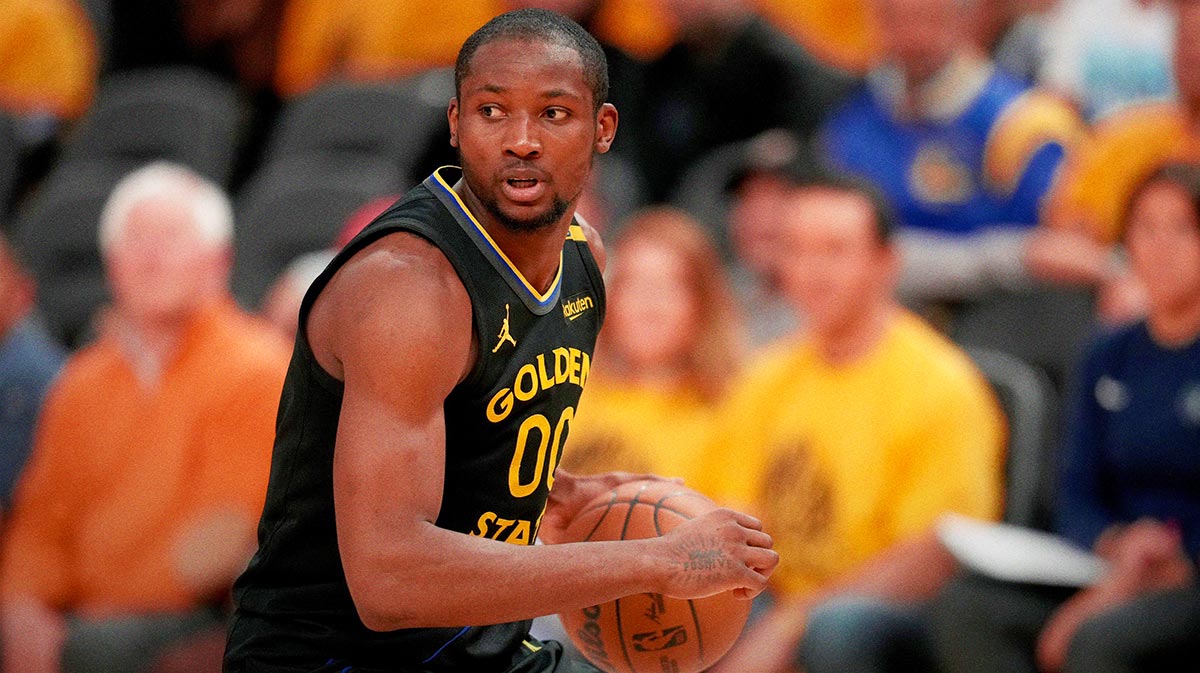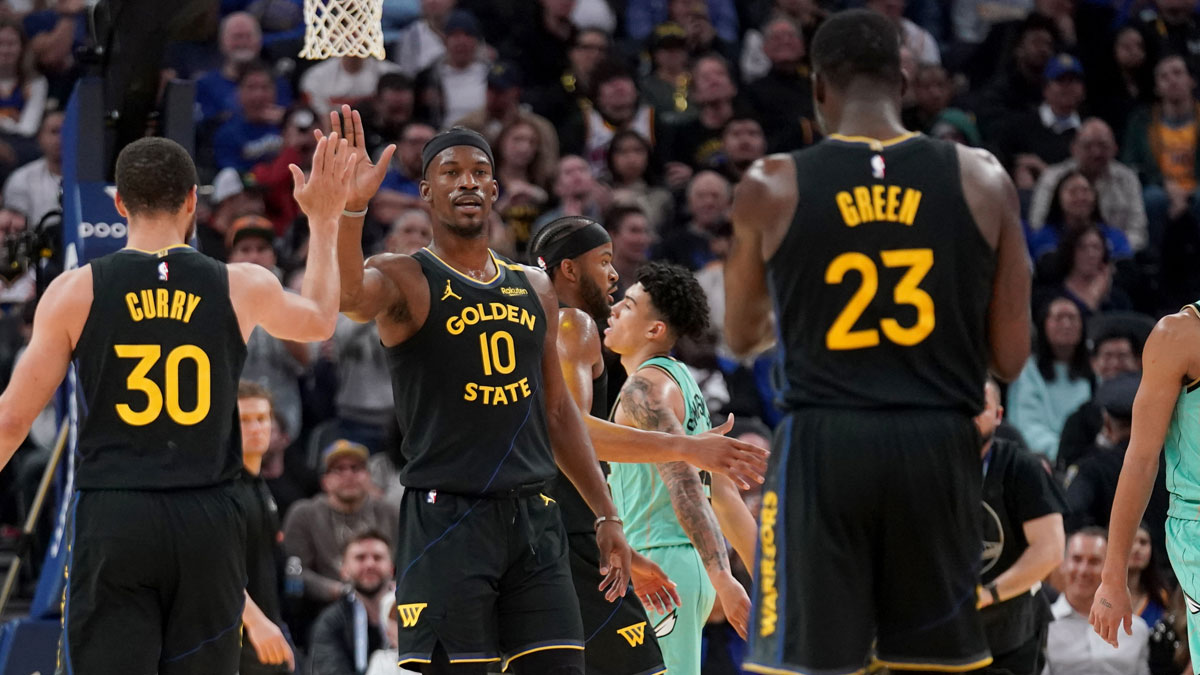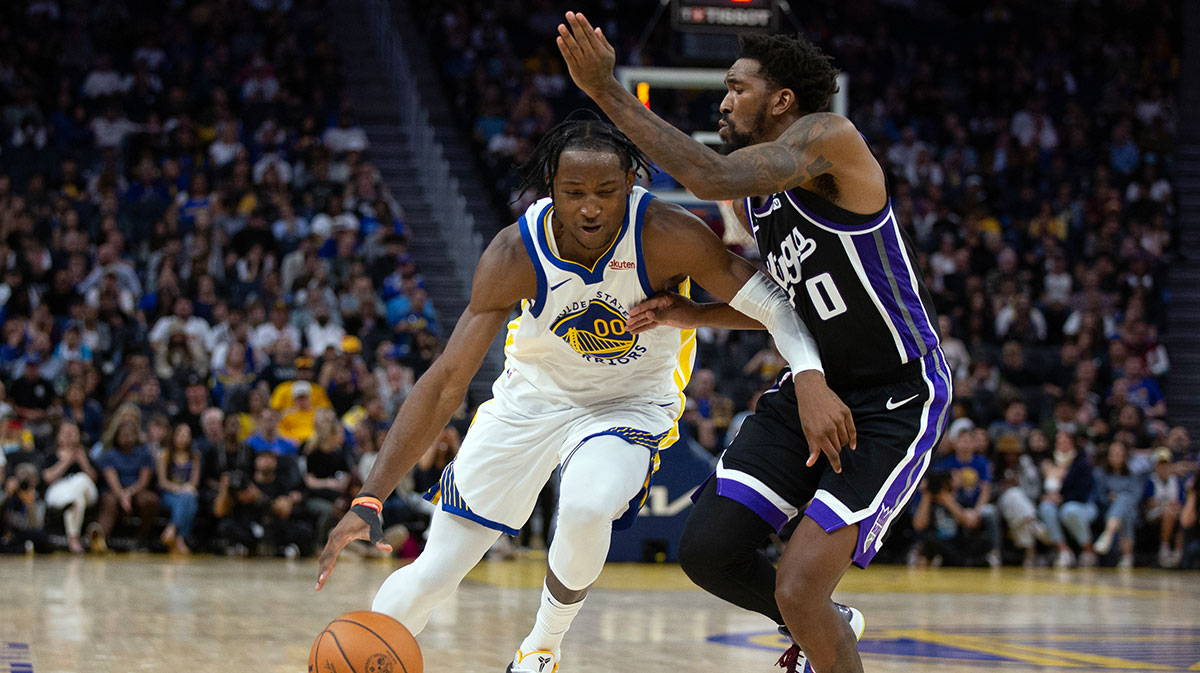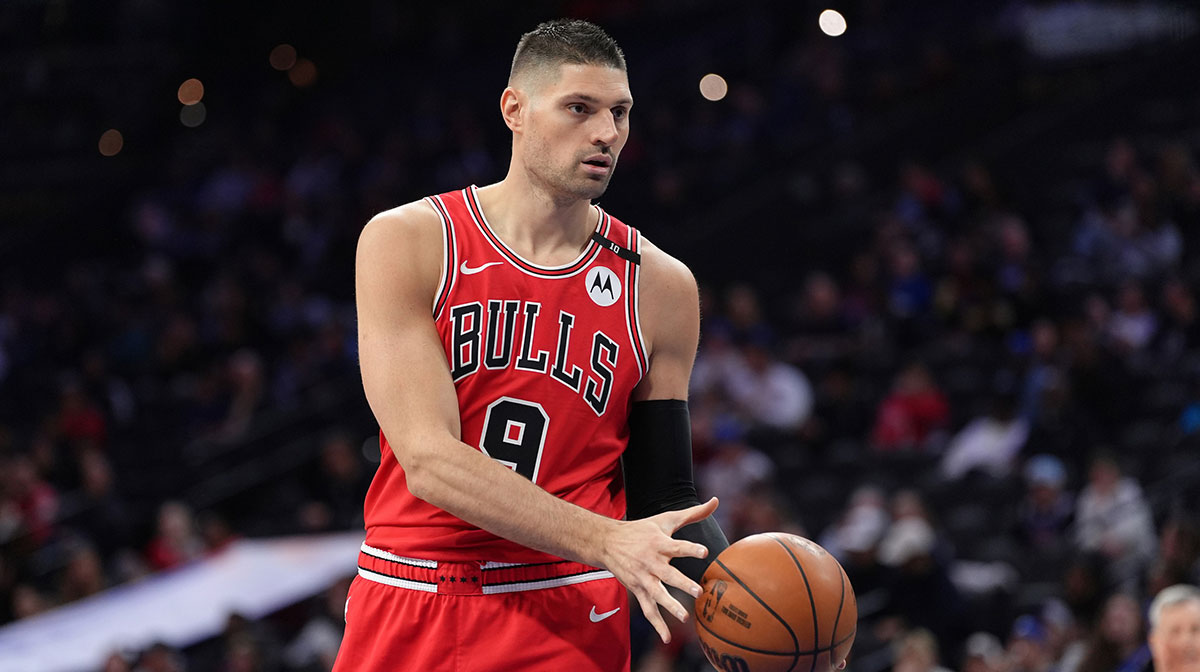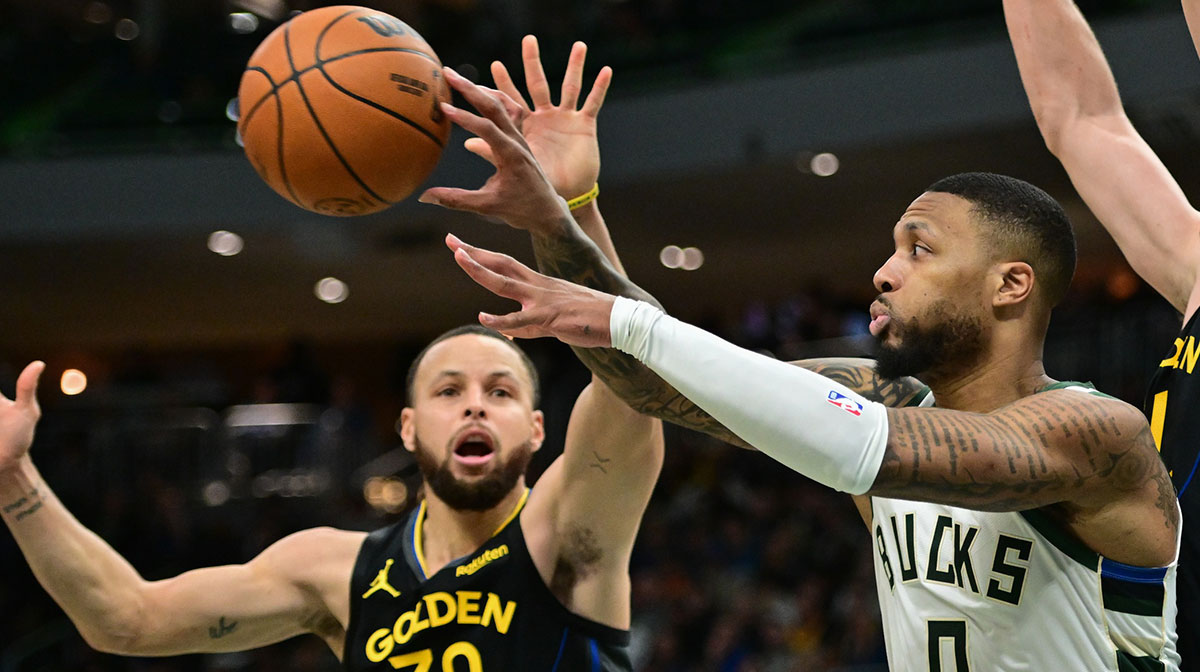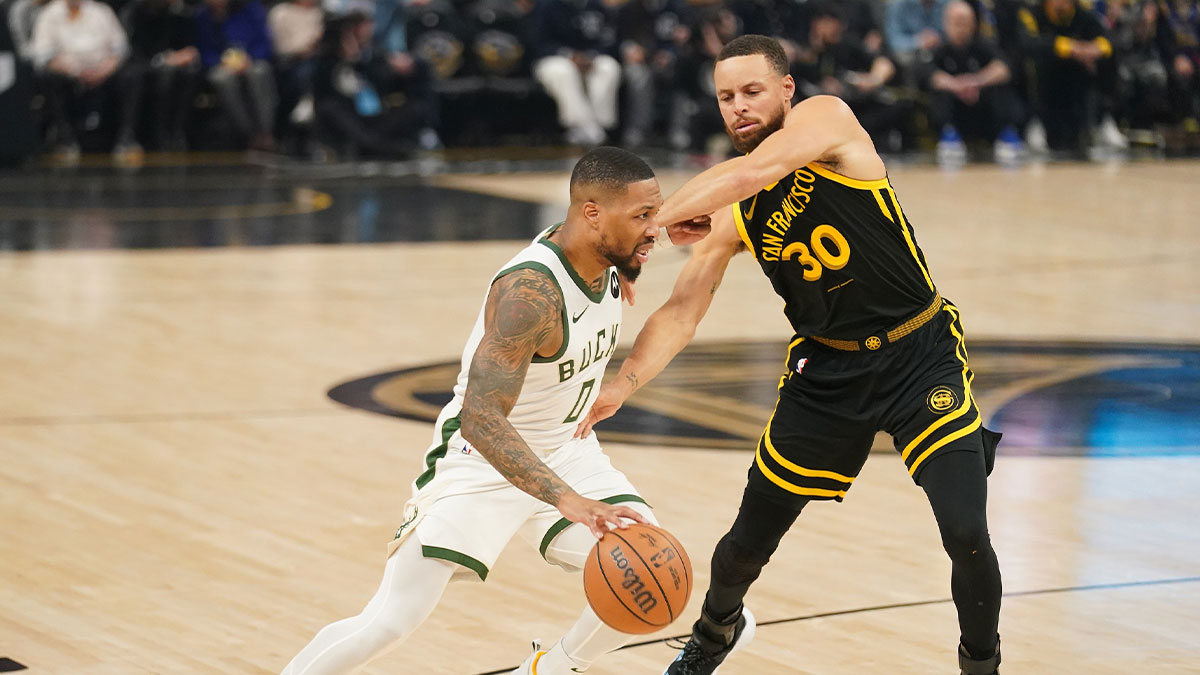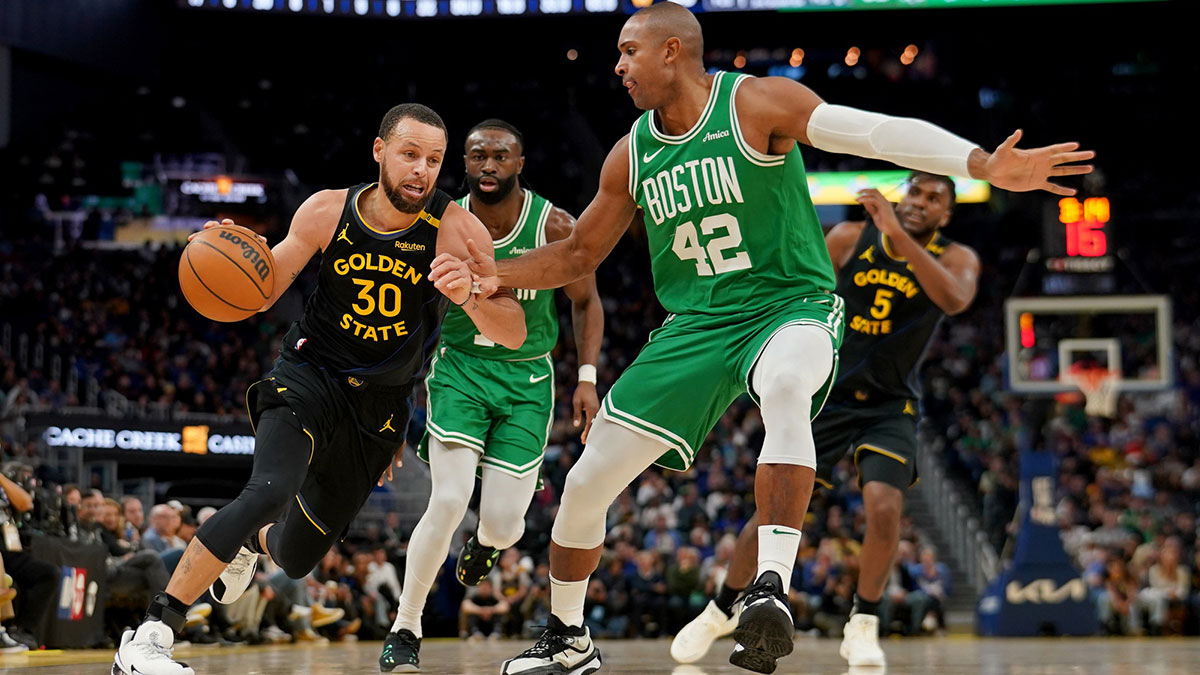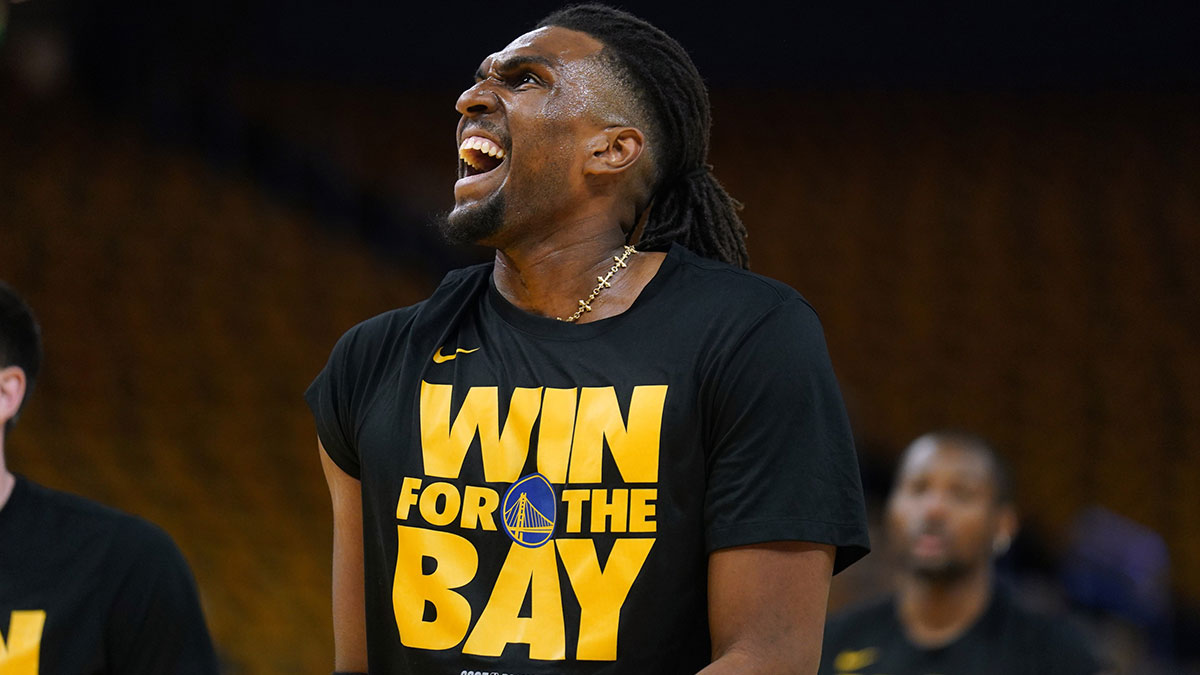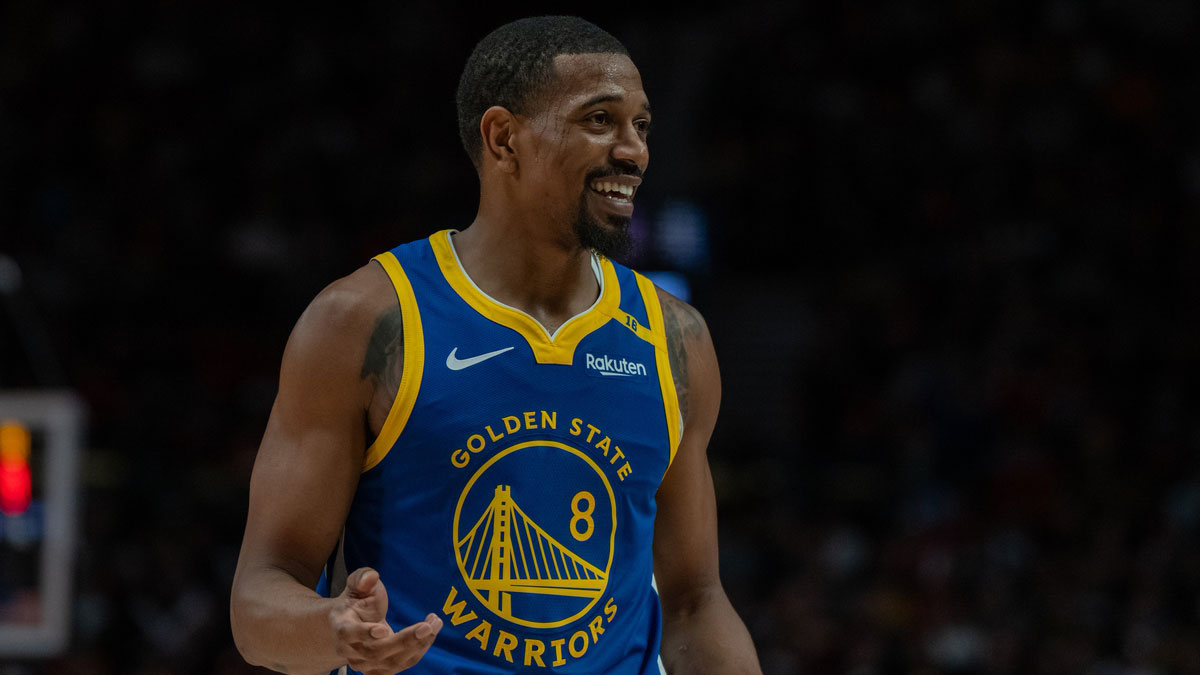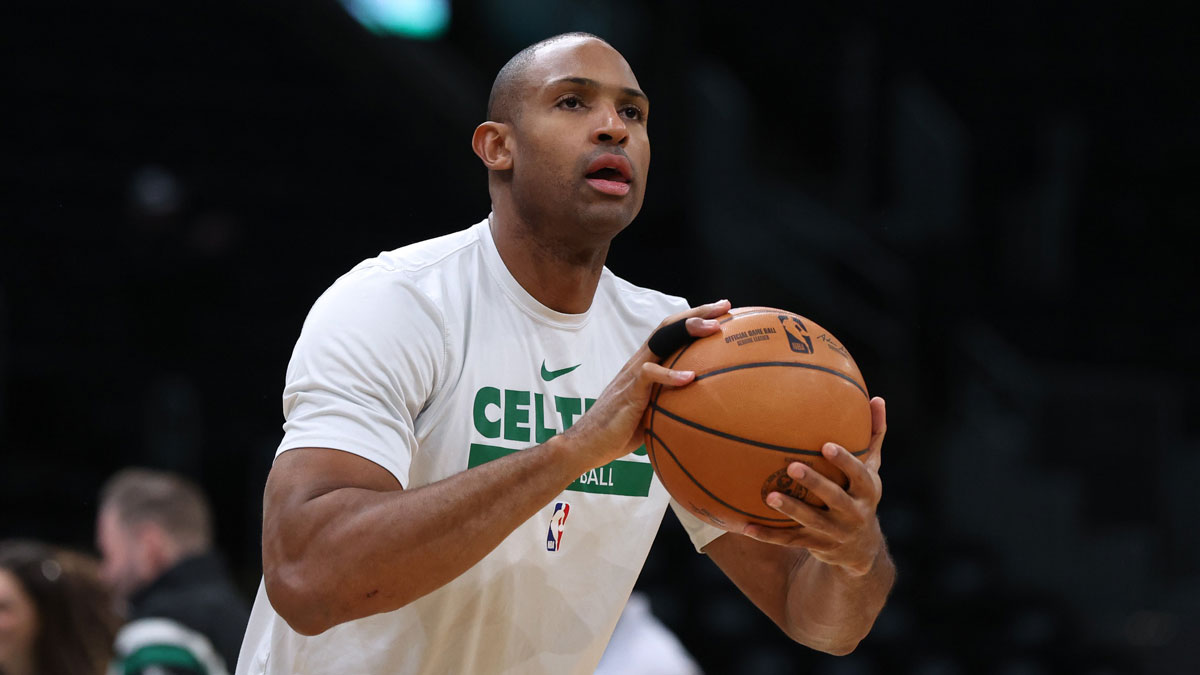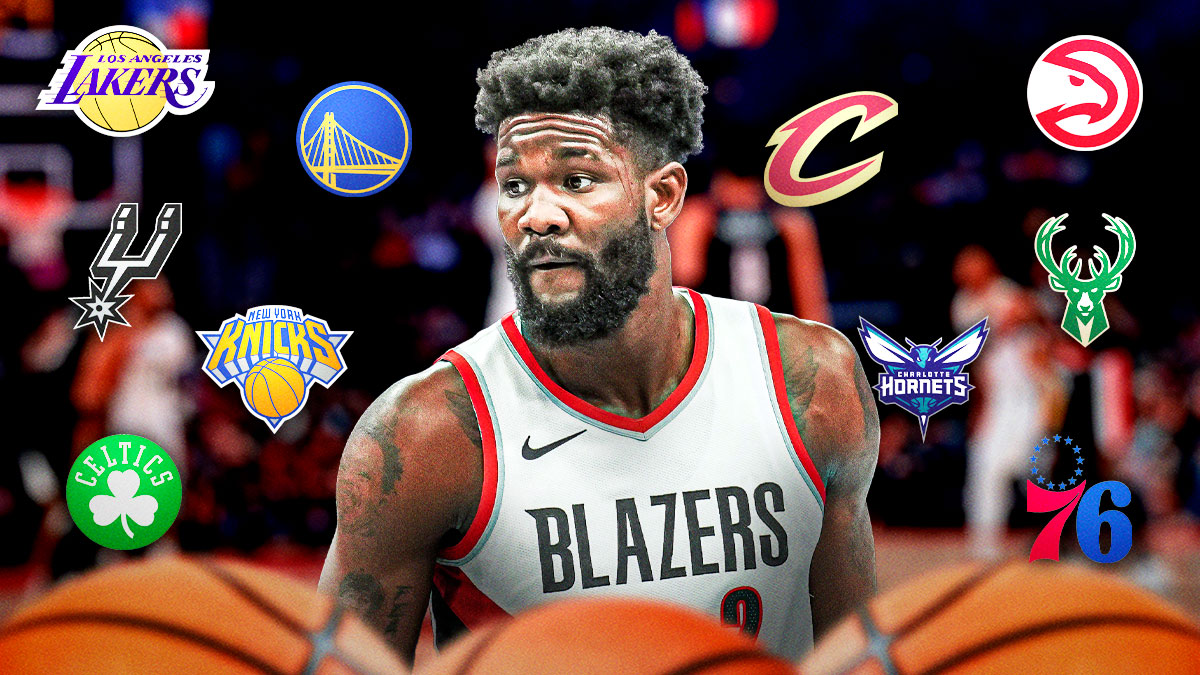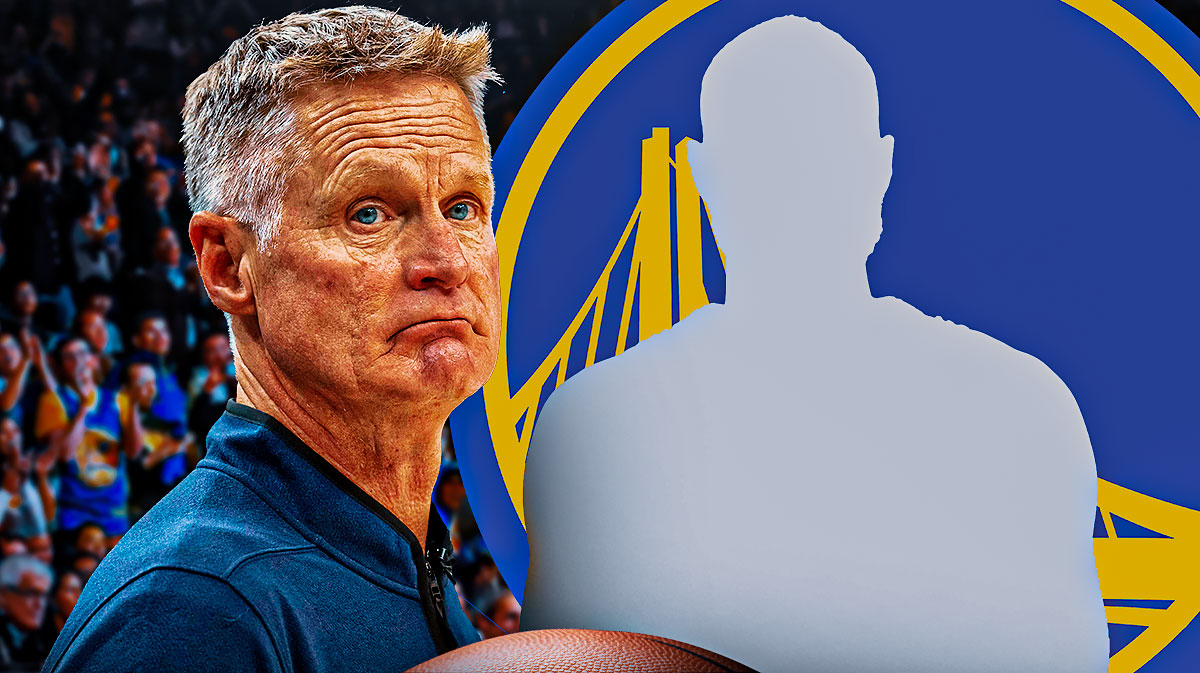Perhaps to the NBA's displeasure, the two best and most-likely championship contenders in the West will meet in the second round. The rematch is set for the Golden State Warriors and Houston Rockets after they clashed in a seven-game duel last May. With Houston falling to fourth in the conference, it unlocked a path for the Trail Blazers, Nuggets, or Spurs to appear in the West Finals. Only one of the Warriors or Rockets will be there.
On a macro level, this encounter feels appropriate. There's one team that genuinely believes the only reason it wasn't holding the Larry O'Brien Trophy was Chris Paul's injured hamstring. On the other side, there's a two-time defending champion that was just pushed to six games by the eight-seed. The Rockets enter this showdown well rested after taking care of the Jazz. Both teams are nearly identical in net rating after the first round:

What will determine this series? Let's dive in.
The Harden Conundrum: How do you defend him?
For the Warriors, it would pretty much go against everything Steve Kerr believes about basketball to throw out a similar defensive coverage that Utah experimented with. To him, no singular player is beating a collective unit, no matter how special of a scorer they are. It's ironic that he tends to lean that way, considering he played with Michael Jordan and is now coaching Kevin Durant, probably the two greatest cheat codes ever.
Given the stupendous production of Harden this year, he absolutely has to be viewed in that same light. If there is a player that's capable of rattling the Warriors' cage and getting them flustered, it's Harden. Outside of Durant, he is the only force in the league that requires a handful of defensive options with each one leaving you a fair amount of uncertainty. He can have the best perimeter defenders hounding him at the top of the key, contesting as tightly as possible, and the Rockets can still (regularly) score three points from that small window of shooting space.
The answer to who defends him is simple: It's everyone.
Due to the Rockets' preferred style in the halfcourt, this series requires a solid dosage of each matchup. Even though Klay Thompson takes serious pride in being the irritant of premier scoring guards (Irving, Westbrook, Lillard), his individual defense on Harden is less important in most cases. Why? Because Houston believes its strongest form of attack is to slow the Warriors down, call for ball-screens at the top of the key, and constantly try to get a smaller defender or a slower and less mobile big man stuck in isolation.
It was evident all throughout last year's series. For Harden, those favorable situations involve Curry or any Warriors' center, notably Kevon Looney. He isn't the only one who hunted mismatches, though. A significant reason Houston pulled out a Game 5 victory last year — to take a 3-2 series lead — was Paul's inconceivable shot-making after receiving a switch (a couple of those instances against David West).
While it's extremely unlikely Kerr deploys a defensive coverage that allows Harden to drive straight to the middle of the floor, he surely understands he'll be watching a lot of step-back attempts over Curry's outstretched arms, or Harden sizing up Looney for either the same shot or dribble penetration. When Golden State fields their Death Lineup with Draymond Green at center, that means Curry has a huge red target on his chest. He's the only one in that lineup Harden is comfortable enough taking one-on-one in isolation multiple times. During any minute Looney or Andrew Bogut are on the floor, those are the matchups The Beard will repeatedly seek.
In the first round versus Utah, they were actually far below their expected value in isolation effectiveness. The Jazz's defense paid off in a lot of ways, holding Houston to just 0.85 points per isolation possession:

Even if Harden went through his own struggles in that series, he is coming right at Curry the same way he always has. It won't take long, either. You can expect this type of offense for the Rockets early and often. Right out of the gate last year in Game 1, they kept their offense slow and simple. The Warriors decided to start with Durant on Harden on most possessions, but it's rendered useless whenever they bring Curry's man into the play:
Notice how aggressively Durant and Curry both try to forbid the screen from working. Harden is predictable and unpredictable at the same time. Curry has guarded him enough times to know what he likes, but it's still the timely jab-steps and body shifts Harden can utilize to get defenders guessing “drive.” Curry isn't long enough to make up for a wrong step backward, and it's ample room to get a clear three.
They also like to bring Capela as the screener when Looney is in the game. Harden is confident versus any big man, and Looney is the only one that Kerr will play heavy minutes now that DeMarcus Cousins is injured. With Looney guarding switches, there are mixed results. Majority of these possessions were in Game 1 alone last year:
If Harden gears up for the step-back with a big on him, it can be classified as a win for Golden State's defense. He's still going to hit deep shots over terrific coverage — he's a superstar and that's what they do — but the Warriors will live with their chances if Looney is the defender rather than Harden blowing by him and forcing rotations.
Looney is a smart and underrated defender in a lot of these moments. Scorers often think he's immobile, but his lateral movements are right on par with what you need at the center spot now. He often stays on his toes, slides with Harden, and uses his hands wisely without getting caught for reaching fouls — something Curry will have to be particularly cautious of in this series. That's partly why Houston will be pinpointing Curry a lot. The more isolations you put him in, the greater the likelihood he picks up three fouls in a half.
Looking back at the West Finals, the Warriors did eventually give Harden a steady diet defensively.
Extreme caveat: Second Spectrum's method of determining an individual “matchup” is to tally it for the defender that spent the most seconds on Player X. That's why there's a ton of noise in the numbers. For example, Durant could begin a possession on Harden, as he usually did. Then when the switch comes, the possession will go to the next defender IF he spends more seconds on Harden than Durant originally did.
Either way you slice it, it's particularly interesting that Houston only scored 93.1 points per 100 possessions as a unit when Curry was matched with Harden:

DET Factor = Deterrent Rate. It indicates the percentage of a player’s season average field goal attempt output, per possession, that he shot in a specific matchup. Below 100 = the defender prevented the offensive player from taking as many shots.
So even if there are weird criteria involved, on the possessions Curry definitely guarded Harden the longest, the Rockets didn't generate much. It's likely because Harden rarely changes course when he sees Curry in front of him. His deterrent rate is the lowest against Curry, Looney, and Jordan Bell. Naturally, it's the highest against the Warriors' best defenders, Iguodala, Green, and Thompson.
Although Harden seemed to struggle against the Jazz, his pull-up three corrected itself to end the series. He's 20-of-54 (37 percent) on triples after taking at least one dribble. Potentially bad news for the Warriors is that he's 10-of-24 (41.7 percent) so far when he dribbles seven or more times. He provided a little glimpse of what could be coming.
Last year, Harden completely fell apart down the stretch of the series. Whether it was fatigue from it being the third round or not having Paul to relieve part of the workload, he made only nine of his last 48 attempts from deep in Games 4-7. As time progressed, the Warriors got smarter about their closeouts and forced him to take highly difficult shots.
With so much star power on the floor, you hate to just simplify a series outcome down to “shot-making.” It's a tired cliché, yes. But given how historic Harden performed during the season, that's what it comes down to. If he's making Curry pay for being smaller and drilling everything, the Warriors may have to adjust to a gimmick-style coverage. That's how they can get frustrated with each other defensively and start to crumble.
Houston's Personnel Changes
Only one of these teams lost a valuable starter. The significance of Trevor Ariza has been diminished within Houston circles for various reasons. He didn't show up in the most important game of the year in ways the Rockets needed him to, and they have adequately filled his minutes with capable offensive pieces. In a much cheaper manner, too.
It's true, they are a better and more dangerous offensive team this time around with Danuel House and Austin Rivers being the reinforcements off the bench and giving Eric Gordon the starting role. Last year, when Houston needed Gordon to start because of Paul's injury, they had nobody reliable off the bench. Gerald Green was basically it, and we all know the ups and downs of having Green in the game during pivotal moments.
Now, it's certainly debatable whether or not anyone could label House and Rivers as “reliable” options in the second unit, but they invigorate the Rockets with two things they lacked in the previous series: Additional playmaking after putting the ball on the floor and another shooting threat if Harden is forced into the paint. House, 25, is younger than Ariza and gives Houston a couple different ways to exploit the Warriors' occasional defensive lapses on the weak side.
Even though Kenneth Faried played 51 total minutes in the Jazz series and he has the high-powered motor to give the Warriors trouble on the glass, it's difficult to envision him being trusted by Mike D'Antoni during any moment with Durant and one of the Splash Brothers on the court. Thus, we shouldn't expect to see him in the frontcourt at all. This isn't a Nene matchup by any means, considering Durant smoked him in six minutes of Game 1 last year before that ended.
At the core of this series, that really leaves both D'Antoni and Kerr with an eight-man rotation. For the Rockets, it's Paul, Harden, Gordon, Tucker, Capela, Rivers, House, and Gerald Green. Golden State will trust Curry, Thompson, Durant, Draymond Green, Looney, Iguodala, Livingston, and touches of McKinnie.
So, technically, Houston (when healthy) has something to look forward to, depth-wise.
There's one gaping hole, though.
All of a sudden, the Rockets lost a major portion of their defensive success versus this juggernaut. Without Ariza, they are down to just one consistently solid piece to throw on Durant. From being a secondary defender on the seven-foot sniper to now the only resistance, Tucker will have to exert more of himself in this series compared to a year ago. And that doesn't even seem fair, since he was the heart and soul of what enabled them to take a double-digit lead in Game 7 with his offensive rebounding.
Both statements can be accurate: Houston is a better overall team when facing 90 percent of the league because of their scoring increase. They are still a worse matchup with the current Warriors, Bucks, and Raptors because of how much superstar wings take over in a best-of-seven playoff atmosphere.
In the previous series, Ariza spent the most time on Durant. He recorded 230 possessions as the primary matchup on Durant (most seconds spent guarding him). Durant shot 18-of-37 on those possessions. A critical part of having Ariza is how much he caused Durant to look elsewhere offensively. The deterrent percentage when Ariza guarded Durant was 63.9, meaning he took far below his season average shot frequency in those matchups.
The one now tasked with the assignment, Tucker, only accounted for 82 possessions as the primary matchup on Durant:

While Durant shot 9-of-22 on those possessions against Tucker, there are a couple of things worth pointing out. First, there is a huge difference between guarding Durant for 82 possessions in seven games and doing it over 200 times. Durant has been on record praising Ariza's individual defense against him in the past, and the Rockets are now without an extra capable body to put in his path. A variety of competence helps any team. Less of it hurts, especially when the minute samples get larger. Second, the Warriors still scored 118.3 points per 100 possessions in the Tucker-on-Durant situations last year. You can mainly attribute that to Tucker being pulled away from the paint, leaving the cutting lanes open and defensive glass unattended.
Did Tucker do a fantastic job on Durant during the two regular-season battles in Oracle this year? Absolutely. But in those three games, Durant still didn't back away from taking shots and being aggressive offensively, nor did he shoot poorly (13-of-27) while being guarded by Tucker.
With the height advantage of (at least) six inches and longer arms, Durant has shown his comfort level when it comes to shooting over the top, or pulling up in transition as the defender is waiting for him to drive.
We're talking about a guy that shot 49 percent on two-pointers, 39.6 percent on threes, and got to the free throw line 8.7 times per game in the last series versus Houston. He was setting the tone from Game 1 with outrageous shots and closing it strongly in Games 6 and 7 once he became even more patient:
https://streamable.com/qnli6
Houston's defensive stand over the last 30 games isn't a joke. It's not a misrepresentation of who they are. It's a more well-connected defense that helps at the right time, plays more athletically, and switches less frequently. But at the same time, they don't have as positive of an outlook when Durant is in one of his zones.
Bad news for the Rockets is that he ended the first round in a groove like never before. Durant's usage in the playoffs is currently 31.7 percent, but he's pairing it with 71.9 percent true shooting. On “tight coverage” shots — the defender within 2-4 feet — he has connected on 15-of-25 from inside the arc (60 percent) and 6-of-11 from deep (54.5 percent).
Houston might need to clone Tucker twice just to snap him out of this, or at least slow him down.
Important Lineups
For the sake of clarity on how both sides have played with their main rotation pieces, these are both the regular season numbers and playoff production thus far:


This does not resemble a Bogut series. He may be needed in certain minutes with Capela eating up the boards, but he is the exact type of center that Harden and Paul want to pick on. As the Clippers showed, if you stretch Bogut out at this age, bad things can happen.
The most intriguing development of the first round was that Thompson's rest minutes greatly benefited Golden State. The group of Curry, Iguodala, Durant, Green, and Looney outscored Los Angeles by 46 points in just 25 minutes. It could provide excellent defense against Houston, but we know the Rockets will just dare Iguodala and Green to shoot open threes.


For D'Antoni, the Tucker-at-center lineup is there waiting on the backburner. If Capela has moments where he's getting hurt by Durant in isolation (it happened last year), or Curry breaks free after they blow a switch, the Rockets will try sliding Tucker up to the five and bringing in House.
Houston's starters were excellent in the first round, and Gordon becomes the team's barometer in this one. If he's playing as aggressive and detail-oriented on defense as he did against Donovan Mitchell, the Splash Brothers will have a tougher time getting separation.
Why Iguodala Matters
When you mention Iguodala's absence in Games 4-7 of last year's series, it does not mean you are equating his importance for Golden State to the importance of Paul for the Rockets. Without a doubt, a starter that has the ball in his hands as much as Paul does is going to carry more of a responsibility to his team.
However, it feels a bit disingenuous to assume the Warriors wouldn't be a better team with their most versatile perimeter defender. Green is the switchy animal that gives them an incredibly high ceiling in defensive spurts, but Iguodala is the one that keeps their floor at a winning level when he plays. Is it fair to ask, “How much help do the Warriors need just to beat this Rockets team?” You could make that argument, but it ignores the whole identity of the team dating back to 2014-15. When you are accustomed to relying on a veteran to clean up various mistakes on defense and that is also the same guy that's been your one-on-one isolation stopper for years, it should throw a wrench in how you perform to some degree.
Iguodala only was injured on this play last year in Game 3. It just so happened to be in the midst of a fantastic stop on Harden, blowing up the drive with his quick feet and strong hands:
https://streamable.com/wi612
But the steal itself isn't the component Golden State missed the most in the second half of the series. It was Iguodala's underrated skill of denying switches, either for a few seconds or the entire possession altogether. When the screen comes for Harden, watch how he fights hard to stay in front of it, sticking close to Harden. It requires Curry hedging to prevent Harden from driving, but also staying within arm's reach of the screener so he can't slip down the lane. After the Rockets don't get the switch they want, Harden just decides to attack Iguodala on his own. That's been The Beard's worst matchup, historically, in these meetings.
In this possession, Iguodala just makes life a lot harder than Houston would like it to be. If they're going to constantly search for Curry (they will when the Death Lineup is in), then Iguodala is the key to limiting some of that damage. By having him start possessions on Harden, he can either buy Curry some time, or just force the Rockets to burn the shot clock all the way down while trying:
https://streamable.com/907z5
The Death Lineup was only able to play 56 minutes versus Houston last year. The impact was felt more on the offensive end, though, with it scoring 115.6 points per 100 possessions in those three games — nearly 17 points better than their default starters after the injury, which included Looney. Kerr was playing the Curry-Thompson-Iguodala-Durant-Green group 18.7 minutes per game before it got taken off the board.
Both injuries hampered their teams. Both lost a starter. Iguodala's occurred when the Warriors were up 2-1. Paul's occurred when the Rockets were up 3-2. With this rematch taking place in the second round, hopefully it creates a healthier story.
Series Pick
This doesn't quite feel the same as Part I. The same juice isn't there. Maybe it's because it's not a foregone conclusion that whoever wins this series will capture the title. Last year, it certainly was. Both teams improved offensively, the Rockets being a bigger surprise given their injuries. Both also took a considerable step back defensively for different reasons. If the Jazz could knock down an average amount of open threes, that series would've looked closer than it was. They were leaving shooters open left and right. It didn't bite them. The margin for error will not be there for Houston's rotations if Golden State attacks with Curry as the lead initiator.
Only one of these teams is truly capable of hitting a gear that borders an untouchable level. Only one of them is able to switch between two different playstyles and have sustainable offensive success with either one.
In non-garbage time minutes last year, removing the very late portion Games 2, 3, and 6 (two Golden State victories), the Warriors still outscored Houston by 6.7 points per 100 possessions. They made too many cuts, forced the Rockets to think about too many actions, and left shooters open way too often. Asking them to do it better against Curry and Durant when they're scorching like this just unfair.
Golden State was up by 10 in the fourth quarter of Game 4, without Iguodala, and ready to post a 3-1 lead. Chris Paul led a perfect comeback for Houston to save the series and steal homecourt. Even if the Warriors have looked ugly at home so far, you have to figure they learned something from this first round.
With how transcendent Harden has been, no single game has “blowout” written on it. But, in high-pressure situations with two offenses that most of the league has no great counter for, one is more well-balanced and has the best attention-absorber in the world. These Rockets' aren't as equipped to handle both the off-ball chaos and Durant when he's trying to prove a point.
Warriors in 5

